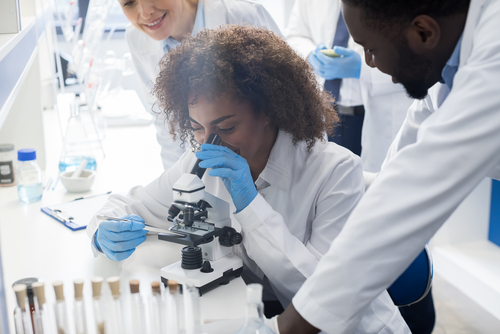
The U.S. Department of Health and Human Services (HHS) has taken some steps to implement new authority to speed up innovation of medical countermeasures like vaccines for COVID-19, but has not yet chosen a private, nonprofit partner to work with on this problem, according to a recently released report from the Government Accountability Office (GAO).
Specifically, the 21st Century Cures Act of 2016 authorized HHS’s Biomedical Advanced Research and Development Authority (BARDA) to establish a public-private partnership to foster and accelerate the development of medical countermeasures (MCMs).
But, so far, HHS has not selected an MCM innovation partner — an independent, nonprofit entity that will use venture capital practices and methods to invest in companies developing MCMs, according to the GAO report published on July 29.
There are numerous reasons for the delay, the GAO says, including those associated with COVID-19.
“The current pandemic really highlights the importance of countermeasures, particularly a need to be able to produce them quickly,” said Mary Denigan-Macauley, GAO’s director of health care, during a recent online interview posted on the agency’s website. “Yet, we know from our work that this isn’t easy to do; it requires flexibility and speed for developing new technologies and approaches.”
At the same time, the process of researching and developing new countermeasures is lengthy, complex and expensive, said Denigan-Macauley. “And if you add in the challenges — such as low profitability, intellectual property rights and the general lack of a commercial market to make something that may never be used — it’s a pretty daunting challenge,” she said.
HHS efforts to respond to public health emergencies include developing MCMs, like vaccines and therapeutics against infectious diseases such as COVID-19, said Denigan-Macauley. “These are useful in helping America get back on its feet during the coronavirus pandemic,” she noted.
In general, developing an MCM is difficult to do and HHS must consider a variety of different agents.
“It’s not just a natural disease outbreak,” Denigan-Macauley said. “It could also be a chemical, radiological or nuclear attack, as well as an emerging or novel infectious disease that we’ve never seen before, like COVID-19.”
All of these different events require countermeasures, she added, and public-private partnerships can help HHS develop much-needed innovative products.
HHS has developed preliminary plans for structuring and overseeing this partnership, according to the GAO report, and thus far has: developed a vision for the innovation partner; staffed a division to manage HHS’s medical innovation partnership; determined an initial amount of required funding; and solicited and considered feedback from venture capital and other stakeholders.
“HHS officials explained this type of partnership approach was new to the agency and required due diligence to develop,” said the report.
HHS officials also pointed out to the GAO that the innovation partner will allow BARDA “to invest in potentially transformative MCMs that have the potential to benefit the government.”
For example, the innovation partner could invest in new wearable technologies to help early detection of viral infections, according to the report.
“HHS officials told GAO that the partner, which is required by law to be a nonprofit entity, will be required to reinvest BARDA’s revenues generated from government investments into further investments made through the partnership,” the report says. “BARDA’s ultimate goal will be to use these revenues to fund new investments.”
In a review of stakeholder comments submitted to HHS, the GAO report also said that potential venture capital partners identified several concerns that could hinder HHS’s implementation of the authority it has under the 2016 law, such as the statutory limit to the annual salary that can be paid to an individual from HHS’s annual appropriation. Some stakeholders indicated it was too low to attract an entity to manage the innovation partner funds, according to the GAO report.
“HHS officials told GAO they are assessing options to mitigate some of these concerns, but that plans will not be final until they select the partner,” according to the GAO report.
“The bottom line [of the GAO report] is that this new type of public-private partnership is an effort to eventually help accelerate and innovate countermeasures development and HHS is working with stakeholders to best understand how to implement this new authority they’ve been given,” Denigan-Macauley said.




